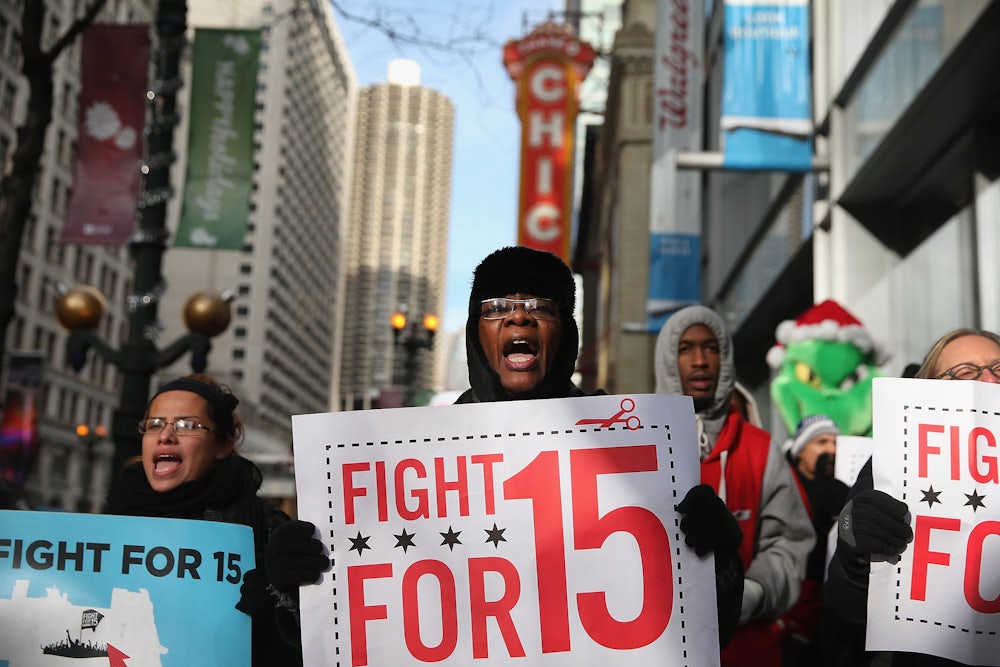Labor Day is coming, and the Economic Policy Institute released a timely report on the status of the American labor movement Thursday morning. Among its findings: Two-thirds of workers ages 18-64 are women and people of color, and black workers are more likely to belong to a union:
The typical union member is often thought to be a worker on a manufacturing line in the Midwest. Manufacturing does have a strong union tradition but people join unions in many industries and occupations. Union members include dental hygienists in Wisconsin, graduate students in Massachusetts, firefighters in Illinois, television writers and scientists in California, security guards in Washington, D.C., digital journalists in New York, and major league baseball players in Georgia and other states.
It is also true that, in the past, union workers were predominantly white men. But as of 2016, roughly 10.6 million of the 16.3 million workers covered by a union contract are women and/or people of color.
The report also says union membership correlates to higher incomes for members of a bargaining unit—and for everyone else. “When the share of workers who are union members is relatively high, as it was in 1979, wages of nonunion workers are higher,” it notes. “Compensation of typical (median) workers grows far faster—four times faster—in states with the smallest declines in unionization than it does in states with the largest declines in unionization.”
But these gains are in danger. In July, the Senate confirmed Trump appointee Marvin Kaplan to a position on the National Labor Relations Board. “Kaplan has never practiced labor law—his sole experience with labor law is on a policy level, drafting legislation to weaken worker protections under the NLRA and holding hearings to criticize the NLRB during the Obama administration,” the AFL-CIO announced in an open letter opposing his nomination. Another Trump appointee, William Emanuel, built a career as a union-busting attorney. Emanuel has not yet been confirmed, but it seems likely that he will be, and that will tip the balance of power on the NLRB to Republicans.
The EPI report makes clear that these confirmations would disproportionately affect people of color and other marginalized communities who now represent the labor rank-and-file. If Democrats really want to resist Donald Trump, they’ll remember this: Fighting Trumpism means fighting unfair labor practices.
